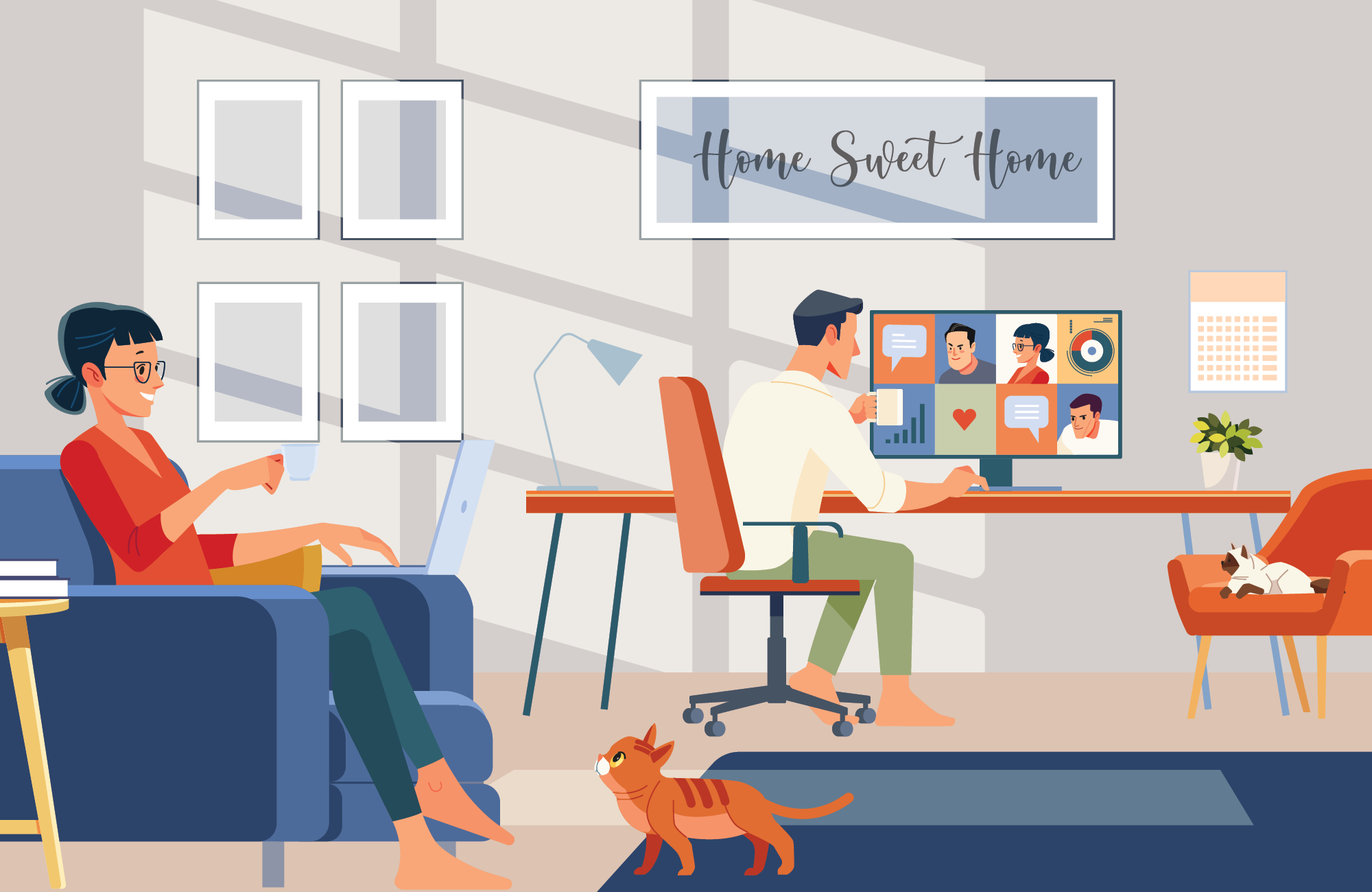
The True Value of Working from Home
Working from home has quickly become normal for many workers across the United States since the pandemic began in 2020. According to the American Time Use Survey conducted by the U.S. Bureau of Labor Statistics, 38% of employed people did some or all of their work at home on days they worked in 2021. Therefore, it should come as no surprise that there has been an increase in demand for homes with designated office space as buyers and sellers have come to appreciate the advantages of remote work.
Why is this important? A home office can add to your home’s value. Plus, some may qualify for tax incentives.
A Valuable Space to Work
The days of attending a Zoom meeting from your kitchen table are over. Home offices are becoming permanent, professional and functional spaces in homes on the market today. They offer a relaxing workspace with limited distractions, which can help you maintain a healthy work/life balance.
The addition of a new home office received a perfect Joy Score of 10 from homeowners in the 2022 Remodeling Impact Report, a joint study conducted by the National Association of Realtors® and the National Association of the Remodeling Industry. This same study found that 40% of REALTORS® reported an increased demand for home offices throughout the pandemic. For sellers with home offices, this is excellent news. Buyers want the flexibility of working from home and view these spaces as valuable during their home search.
How you set up your home office can have a direct impact on the value of your property, such as increasing the square footage of your home. If you’re thinking about adding an extension to create your home office, we advise contacting a real estate agent first. Repurposing existing rooms, such as a bedroom, garage or loft, could be less risky.
A Comfortable Space to Work
What makes a comfortable yet productive home office? Here are some things to consider:
Your home office may also qualify for tax breaks under the IRS’ Home Office Deduction.
To be eligible, you must use part of your home:
How to Calculate Your Deduction
Qualifying taxpayers can calculate home office deductions using either the simplified or regular method.
TowneBank Mortgage is not a tax consultant. Contact your tax advisor for more details.
Why is this important? A home office can add to your home’s value. Plus, some may qualify for tax incentives.
A Valuable Space to Work
The days of attending a Zoom meeting from your kitchen table are over. Home offices are becoming permanent, professional and functional spaces in homes on the market today. They offer a relaxing workspace with limited distractions, which can help you maintain a healthy work/life balance.
The addition of a new home office received a perfect Joy Score of 10 from homeowners in the 2022 Remodeling Impact Report, a joint study conducted by the National Association of Realtors® and the National Association of the Remodeling Industry. This same study found that 40% of REALTORS® reported an increased demand for home offices throughout the pandemic. For sellers with home offices, this is excellent news. Buyers want the flexibility of working from home and view these spaces as valuable during their home search.
How you set up your home office can have a direct impact on the value of your property, such as increasing the square footage of your home. If you’re thinking about adding an extension to create your home office, we advise contacting a real estate agent first. Repurposing existing rooms, such as a bedroom, garage or loft, could be less risky.
A Comfortable Space to Work
What makes a comfortable yet productive home office? Here are some things to consider:
- Avoid high traffic areas in your home for more privacy
- A quiet space is a happy space, check the room’s acoustics
- Natural and ambient lighting helps to prevent eye strain
- Temperature control and air flow
- Easy access to power and high-speed internet
- Built-in shelving and storage helps to eliminate desk clutter
- The color of your walls can impact mood and productivity - green can be calming and energizing
- Investing in an ergonomic chair or standing desk supports a healthy workspace
- Do you need an additional sitting area for meetings?
Your home office may also qualify for tax breaks under the IRS’ Home Office Deduction.
To be eligible, you must use part of your home:
- Exclusively and regularly as your principal place of business
- Exclusively and regularly as a place where you meet or deal with patients, clients or customers in the normal course of your trade or business
How to Calculate Your Deduction
Qualifying taxpayers can calculate home office deductions using either the simplified or regular method.
- The maximum deduction for the simplified method is $1,500, at a rate of $5 a square foot for up to 300 square feet.
- The regular method allows for deductions based on the percentage of your home dedicated to business use. You can deduct most things used for your office with this method.
- Direct expenses are exclusively for your office or business and are fully deductible. Example: stapler or office desk.
- Indirect expenses are for your entire home, so you can only deduct the portion equal to your office. Example: home utilities or maintenance.
- Unrelated expenses are for your home but don’t affect your business. These are not deductible. Example: lawn care.
TowneBank Mortgage is not a tax consultant. Contact your tax advisor for more details.
